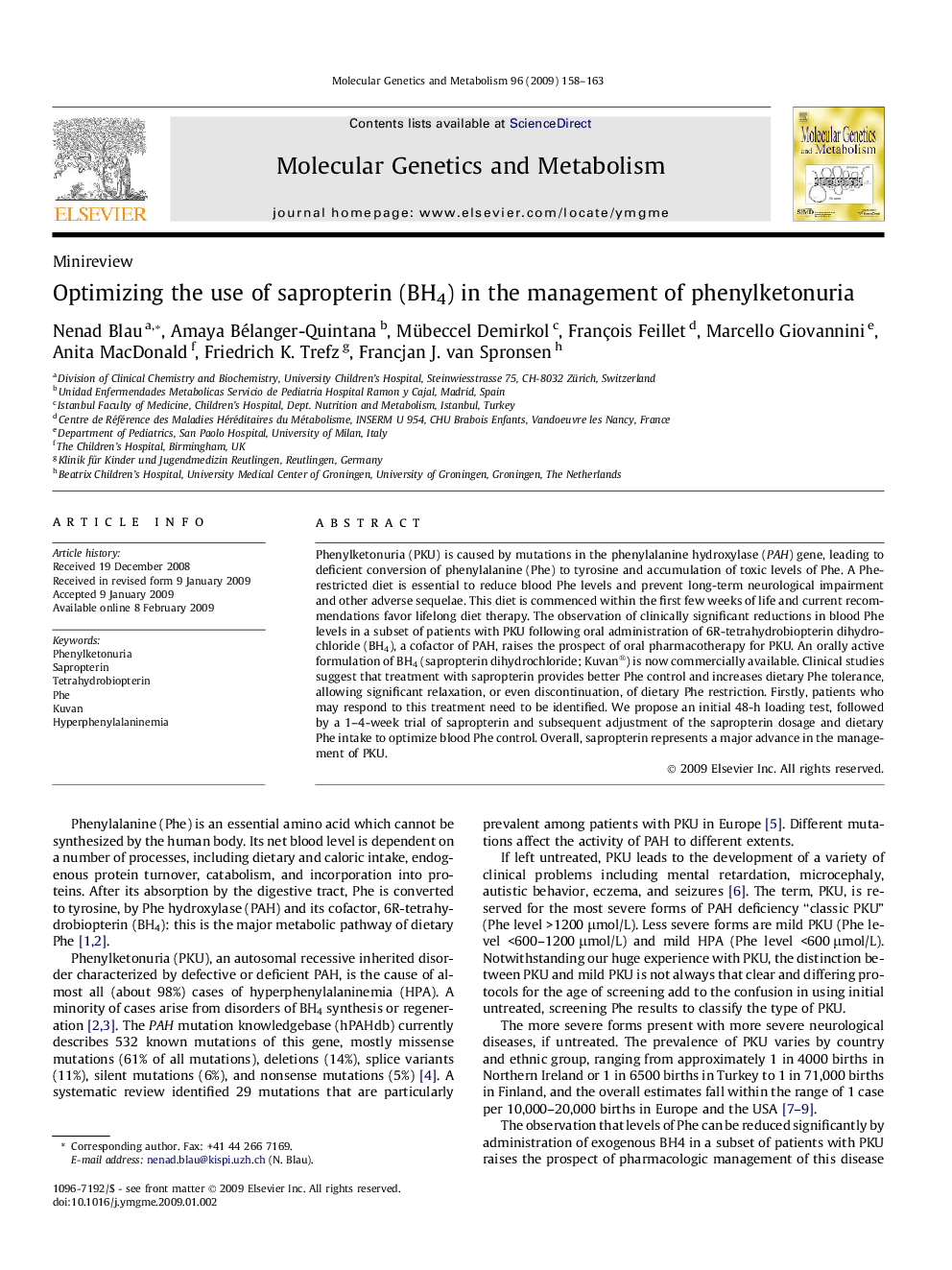| کد مقاله | کد نشریه | سال انتشار | مقاله انگلیسی | نسخه تمام متن |
|---|---|---|---|---|
| 10834330 | 1065878 | 2009 | 6 صفحه PDF | دانلود رایگان |
عنوان انگلیسی مقاله ISI
Optimizing the use of sapropterin (BH4) in the management of phenylketonuria
دانلود مقاله + سفارش ترجمه
دانلود مقاله ISI انگلیسی
رایگان برای ایرانیان
کلمات کلیدی
موضوعات مرتبط
علوم زیستی و بیوفناوری
بیوشیمی، ژنتیک و زیست شناسی مولکولی
زیست شیمی
پیش نمایش صفحه اول مقاله

چکیده انگلیسی
Phenylketonuria (PKU) is caused by mutations in the phenylalanine hydroxylase (PAH) gene, leading to deficient conversion of phenylalanine (Phe) to tyrosine and accumulation of toxic levels of Phe. A Phe-restricted diet is essential to reduce blood Phe levels and prevent long-term neurological impairment and other adverse sequelae. This diet is commenced within the first few weeks of life and current recommendations favor lifelong diet therapy. The observation of clinically significant reductions in blood Phe levels in a subset of patients with PKU following oral administration of 6R-tetrahydrobiopterin dihydrochloride (BH4), a cofactor of PAH, raises the prospect of oral pharmacotherapy for PKU. An orally active formulation of BH4 (sapropterin dihydrochloride; Kuvan®) is now commercially available. Clinical studies suggest that treatment with sapropterin provides better Phe control and increases dietary Phe tolerance, allowing significant relaxation, or even discontinuation, of dietary Phe restriction. Firstly, patients who may respond to this treatment need to be identified. We propose an initial 48-h loading test, followed by a 1-4-week trial of sapropterin and subsequent adjustment of the sapropterin dosage and dietary Phe intake to optimize blood Phe control. Overall, sapropterin represents a major advance in the management of PKU.
ناشر
Database: Elsevier - ScienceDirect (ساینس دایرکت)
Journal: Molecular Genetics and Metabolism - Volume 96, Issue 4, April 2009, Pages 158-163
Journal: Molecular Genetics and Metabolism - Volume 96, Issue 4, April 2009, Pages 158-163
نویسندگان
Nenad Blau, Amaya Bélanger-Quintana, Mübeccel Demirkol, François Feillet, Marcello Giovannini, Anita MacDonald, Friedrich K. Trefz, Francjan J. van Spronsen,